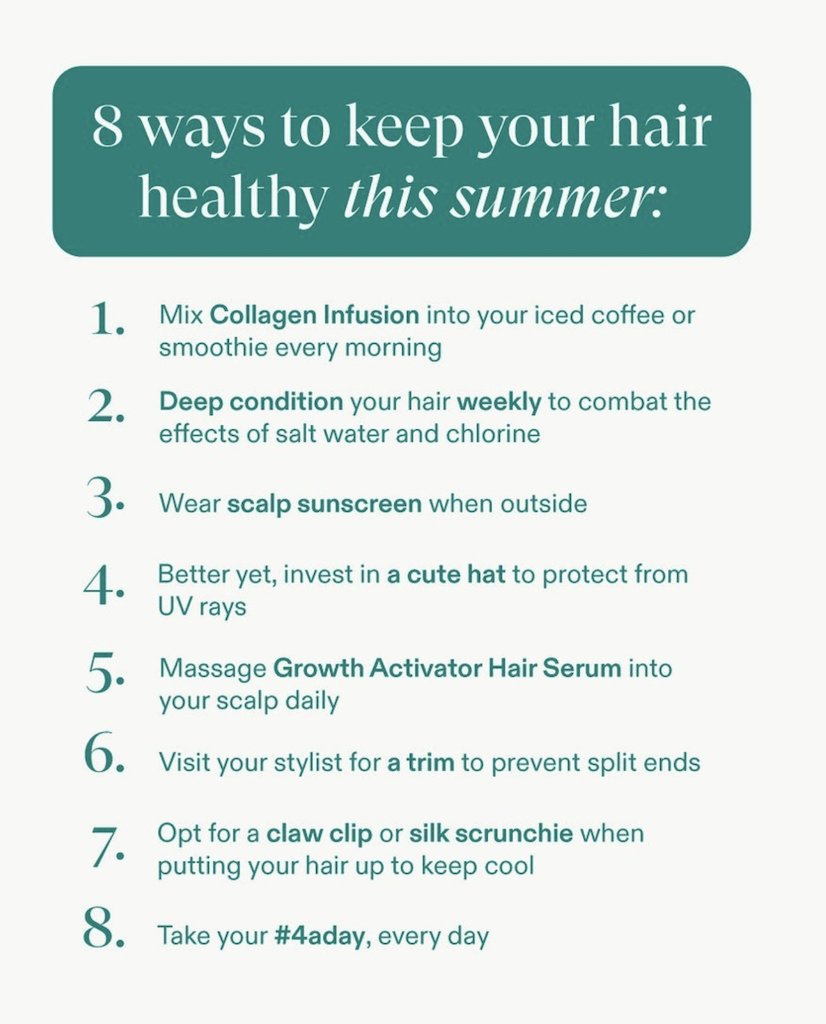Beauty...

By Mollysims.com
Struggle with hair loss? We have good and bad news for you—just about everyone does, so you’re not alone. Today we have Nutrafol’s Dr. Tess Marshall joining us to talk all things hair loss and thinning. As the Director of Product Development, she’s a naturopathic doctor, responsible for developing natural products. There’s a reason Nutrafol is the number one dermatologist recommended hair growth supplement. So why is there such a stigma around hair? Likely because it’s so important to us women and our identities.
We debunk myths, learn the science behind hair loss, tricks for growing thicker hair, and get the recipe for a very special concoction of tea blends that might just help with our old friend, stress. Maybe you’ve heard of her.
“Nutrafol is looking to remove the stigma and normalize the conversation around women’s hair thinning while providing natural and productive products to help them on their hair journey. It gets overlooked how much women experience this problem. Over half of women in their lifetime will have hair thinning which is a ton of people. Hair loss at one time was only a men’s problems—when you look into the research they were almost extrapolating what’s happening to men and assuming those same processes are happening for women and that’s just not true. While some things are similar, Nutrafol is the expert in hair and female biology and that’s why we started to create products for women at different times of their life.”
“It’s the result of several different factors. You have these underlying systems in your body that are constantly communicating with the hair follicle. I like to think of the hair follicle as a tiny little organ that sits in your scalp and it’s constantly receiving signals from your immune system, from your hormones, and from your diet. When you think of all these factors, all together at once, which is really what impacts how your hair grows, if any of those are imbalanced, it really impacts how your hair thins.”
“You can’t go from having super fine hair given by your genetics to all of a sudden having thick hair. The best trick is really to get to the root cause of the problem. Younger women might be more susceptive to stress. In the postpartum period, you’re really depleted of nutrients and your hormones are going through a lot of different changes. In menopause, your hormones are changing and your metabolism is slowing down. You have to find what the trigger is for your hair thinning and improving that.
Hair cycles in three different parts: anagen is the growth phase, canagan is when your hair stops receiving nutrients and the hair detaches from the follicle, and telogen is when your hair is just sitting on your hair scalp waiting to fall out eventually. The goal is to prolong anagen, the growth phase, as long as you can.
In terms of food to help promote hair growth, protein is the most important thing you can eat as amino acids help rebuild the hair strand. Fruits and vegetables are very helpful. Gut health is also really underestimated. You can be doing all the right things but if your gut health is poor, you’re not going to digest or absorb these nutrients correctly. I’m always recommending women focus on the microbiome and their digestive capabilities.”

@nutrafol
“There are a lot of different ways you can be stressed. You need to support your body to build your stress resistance so you can bounce back as fast as you can. I drink quarts of tea that I make for myself at night.
-Skullcap
-Avena Sativa
-Cleavers
-Nettle
Brew loose herbs for 5-10 minutes and keep it in in the fridge until you’re ready to drink it. In one day, I’ll drink the whole quart, it’s my own personal iced tea.
Skullcap is anti-anxiety, and super calming. Avena sativa is really nourishing to your nervous system and fills you up with joy. Nettle is going to load you up with a bunch of minerals and make you feel nice.”